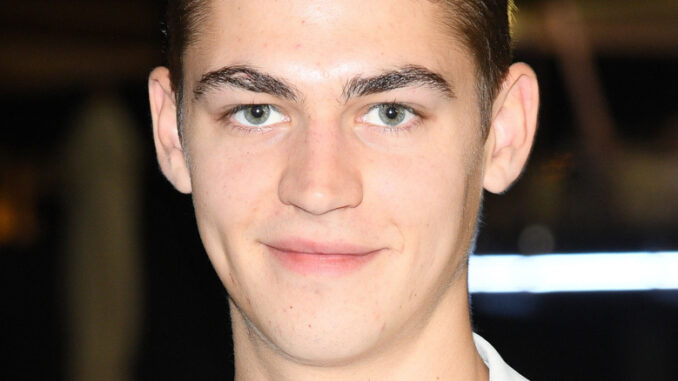
The Quiet Sanctuary: What Social Media’s Loss Means for the Artist
In an age where digital footprints are meticulously curated, where careers can be built on a viral moment, and public figures are expected to live under the relentless glare of the digital spotlight, Hero Fiennes-Tiffin stands as a beacon of quiet defiance. His revealed preference for genuine acting work over the ephemeral clamor of online hype isn’t merely a personal choice; it’s an illustrative essay in itself, a profound commentary on what social media has caused us to lose, and what a dedicated artist seeks to reclaim.
The pervasive hum of social media has become the ambient sound of our lives. For actors, musicians, and public personalities, it’s often framed as an indispensable tool: a direct line to fans, a platform for self-promotion, a metric of relevance. The pressure to be “always on” is immense – to share behind-the-scenes glimpses, to engage with comments, to broadcast every milestone. This digital obligation, however, casts a long shadow over the very craft it purports to serve. What is lost in this constant performance of self?
Firstly, there is the loss of mystique and the profound focus on craft. An actor’s power often lies in their ability to disappear into a role, to become someone else entirely. Social media, by demanding constant self-disclosure, erodes this illusion. It transforms the alchemist into the influencer, the magician into the marketer. Hero Fiennes-Tiffin, known for roles that require significant emotional depth, understands that the soul of a character isn’t found in a carefully filtered selfie or a trending hashtag. It’s forged in quiet study, in introspection, in the deliberate process of shedding one’s own identity to inhabit another. The “online hype” becomes a deafening distraction, pulling the artist away from the subterranean depths of character work and into the superficial currents of public opinion. His avoidance isn’t a rejection of fans, but a protection of the sacred space where true artistry blossoms.
Secondly, there is the loss of authenticity in connection and the purity of purpose. Social media thrives on a curated reality, where every interaction is a performance, every post a calculation. The “connection” it offers, while vast, is often shallow, built on fleeting likes and superficial comments rather than shared human experience. For an actor, the purpose is to tell stories, to evoke emotion, to reflect the human condition. When the goal shifts from authentic storytelling to garnering viral attention, the very essence of the work is diluted. HFT’s preference for acting work over hype speaks to a desire for impact that resonates long after a feed has scrolled by. He chooses the lasting impression of a memorable performance over the fleeting validation of online engagement, valuing the immersive, collaborative process of filmmaking over the solitary, often anxiety-inducing, act of self-promotion.
Consider the metaphor of a skilled carpenter. Her hands are calloused, her mind focused on the grain of the wood, the precision of the cut, the integrity of the joint. She finds fulfillment not in parading her half-finished pieces to a digital crowd for applause, but in the quiet satisfaction of a perfectly crafted table, knowing its strength and beauty will endure. Social media, for the actor, is akin to asking that carpenter to constantly interrupt her work to live-stream her sawdust, to respond to critiques on her hammer grip, to justify her choice of wood to an unseen audience. It drains the energy meant for creation and redirects it towards validation.
Hero Fiennes-Tiffin’s choice, then, is not a loss for social media; it is, ironically, a gain for his art and, by extension, for his audience. By stepping back from the digital demands, he protects the fertile ground where creativity thrives. He preserves the mystery inherent in performance, allowing his characters to speak for themselves, untainted by the incessant chatter of his personal brand. He prioritizes the deep, internal work that produces nuanced, compelling portrayals over the superficial requirements of digital visibility.
In a world increasingly defined by screens and notifications, Fiennes-Tiffin offers a quiet, powerful illustration: that true artistic value isn’t measured in likes or followers, but in dedication to craft, in the courage to delve into the depths of human experience, and in the profound, often solitary, work that brings stories to life. His decision reminds us that sometimes, to gain everything in art, one must be willing to lose everything to hype. The quiet sanctuary he seeks for his acting work is not an escape from reality, but a deeper dive into it, promising richer performances that will resonate long after the digital noise has faded.
